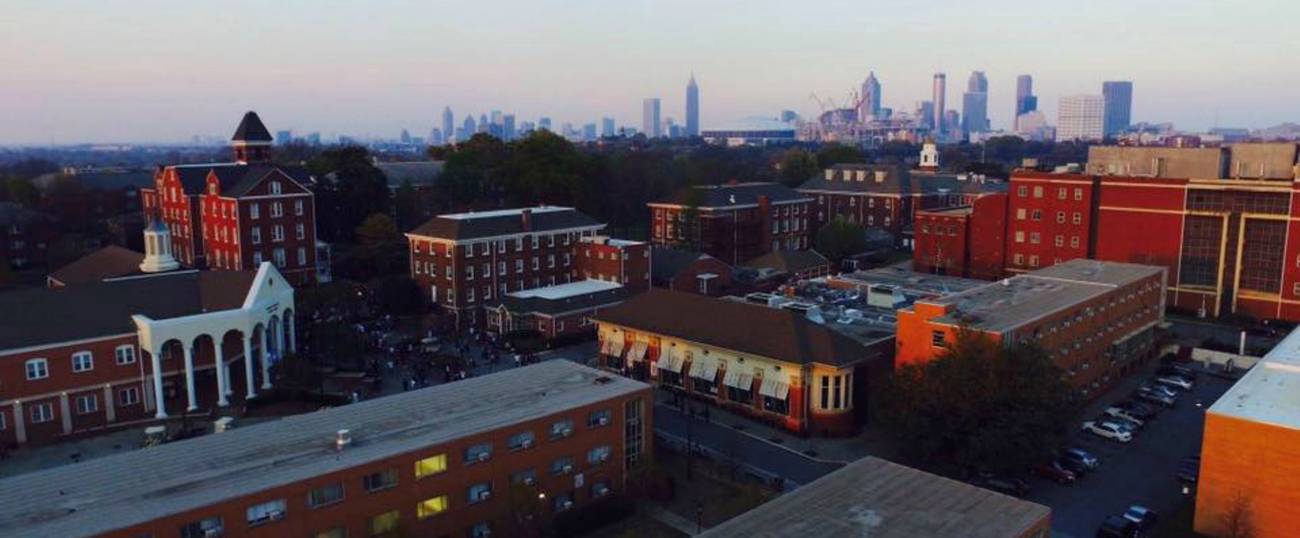University Debaters Asked to Justify Palestinian Terrorism Against Israeli Civilians
A controversial motion at the U.S. Universities Debating Championship in Atlanta sparked walkouts and, apparently, tears




Last October 3, a two-year old infant was stabbed in Jerusalem by a Palestinian terrorist, who murdered the baby’s father and critically wounded his mother. On January 15, a mother-of-six was stabbed to death at home in front of her teenage daughter by another terrorist. Last Sunday, April 10, participants at the U.S. Universities Debating Championship (USUDC) at Morehouse College in Atlanta, Georgia, were challenged to justify attacks of this nature with the motion, “This House Believes That Violence By Palestinians Against Israeli Civilian Targets Is Justified.”
According to Jordan Trafton, a student from Claremont McKenna College, who judged at the tournament, the motion failed to arouse controversy when announced. “I look around and nobody is doing anything, and I’m so shocked,” he said. “This is Morehouse, a historically black college where everyone is up in arms about social justice.”
When appeals from the Claremont McKenna team coach to the organizers to cancel the round fell on deaf ears, Trafton mounted the stage and demanded that the round be called off. For this act of protest, Trafton said he was forbidden from judging that round; the four other judges from his college walked out in protest. According to The Tower, some debaters who decided nevertheless to participate into the round later broke down in tears.
Debating is a competitive activity, in which pairs of competitors argue either for or against a motion announced 15 minutes before each round. Participants are assigned a side, and are thus often required to argue against their own personal beliefs on controversial matters. As a game, debating tests competitors to the limits on their ability to reason creatively and convincingly outside their comfort zones. The grand final of the last world championship, for example, was on whether “world’s poor would be justified in pursuing complete Marxist revolution.”
Indeed, this is not the first time that debating tournaments have asked teams to address the legitimacy of terrorism. The same weekend, the final of a competition in Glasgow, Scotland, asked competitors to address whether “civilians are a legitimate target in conflict.” In 2015, during the semifinal of the Israeli National Championship in Herzliya, debaters were asked to argue whether “deliberate attacks on civilians, by the weaker side, are a justified tactic in asymmetrical wars.” And in 2014, at a tournament at Haifa’s Technion, organizers asked debaters to propose that they “as the Palestinian people, would launch a third intifada.”
With frequent motions on race, gender, religion, disability, and sexuality, the international debating community is prominent in resisting the Western trend of censoring discussion on issues that might be regarded by some as intrinsically offensive or that might involve offensive arguments. Nevertheless, this appears to be the first time that a major tournament has explicitly addressed justifying violence against a specific civilian population.
Complaints were made that the motion itself violated the competition’s own equity rules, which prohibit participants from “making denigrating comments on the basis of… national or ethnic origin,” or “threatening… or intimidating other participants.” Stanford’s Harry Elliot, winner of the best speaker trophy at the USUDC, said that “in a perfect world” such a motion could be debated without automatically violating the equity policy, but believes that organizers should exercise caution when setting motions that could push to make such violations.
Israeli world debate champion Michael Shapira believes there is no problem with the controversial USUDC motion. “The idea that civilians must not be attacked in war is a moral idea,” he said. “We discuss moral ideas all the time.” Debating competitions often introduce abstract themes through real-life cases, he said, in order to contextualize them. In Shapira’s words, it would be “unfair” to complain about this motion.
“When debating, I not infrequently “justify” (in the framework of the game) things that include atrocities against families of other participants, [including] invading countries I’ve never visited [or] sanctions against people I don’t know.”
Others were less sanguine. Hayah Eichler, previously of the Hebrew University, is concerned that the motion was unfair. “It seems to me nearly impossible,” she said, to defend, say, the infamous murder of the sleeping Fogel family in 2011. Loath to see debating tournaments become “safe spaces,” she is nevertheless “infuriated” by perceived hypocrisy, sensing that the very people who “advocate not debating any motion to do with racial minorities, poor people, and other minority groups… [would] have no problem telling me… that if someone infiltrates my house in the middle of the night and butchers my children – specifically my children, not some abstract “civilian children,” in their sleep, that is justifiable.”
Trafton claims that his concerns were not taken seriously, and was surprised by others’ disinterest in light of the active discussion on “safe spaces.” (Ironically, he noted, a safe space forum was cut short in order to announce this motion).
This incident is likely to raise concerns over anti-Israel attitudes in Western student circles, but the boycott movement remains conspicuous by its absence from the world debating circuit. The Israeli Debating League is well respected, with an out-sized presence at major tournaments and members competing at the highest levels internationally. Indeed, the irrelevance of the boycott movement in debating world is arguably connected to this commitment to freedom of speech and expression. “Boycotts run counter to the very idea of debating,” said Shapira, who pointed out that Israeli debaters make no secret of their affection for their country at international tournaments.
I reached out to both competition’s core adjudication team and the equity offices, but they could not be immediately reached for comment.
Eylon Aslan-Levy is an Israeli news anchor and political commentator. He is a graduate of Oxford, Cambridge and the IDF.